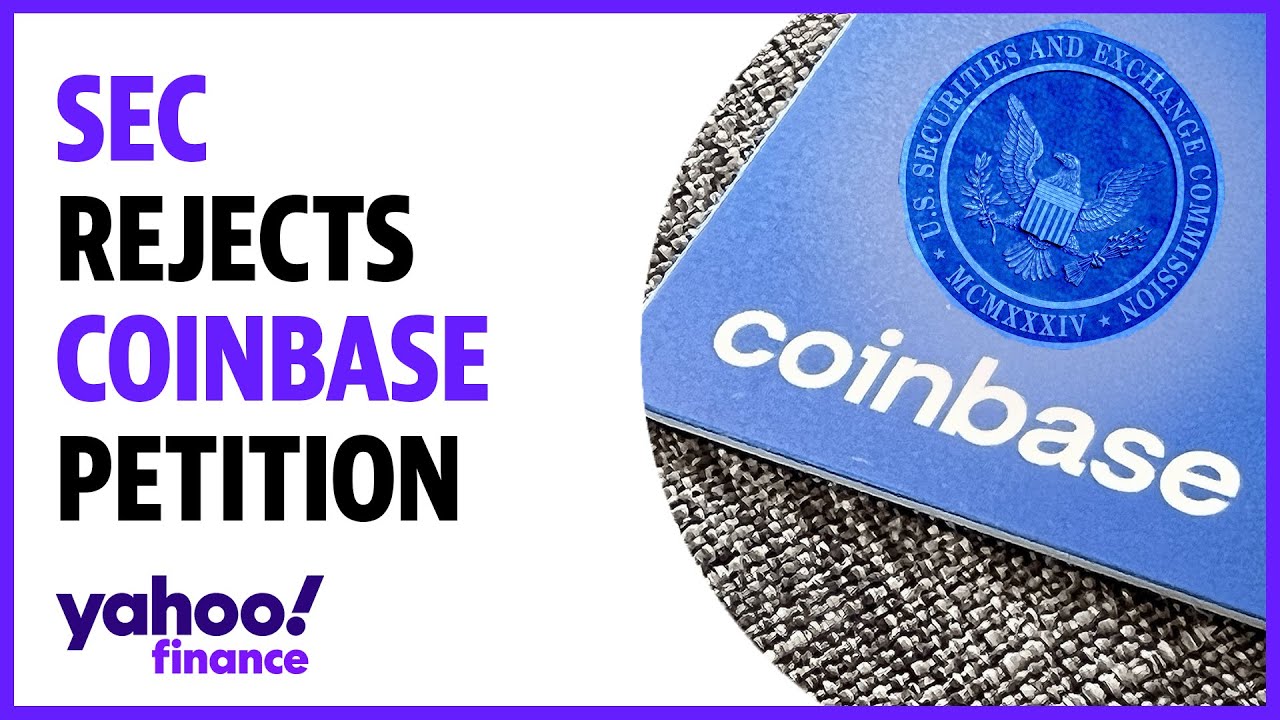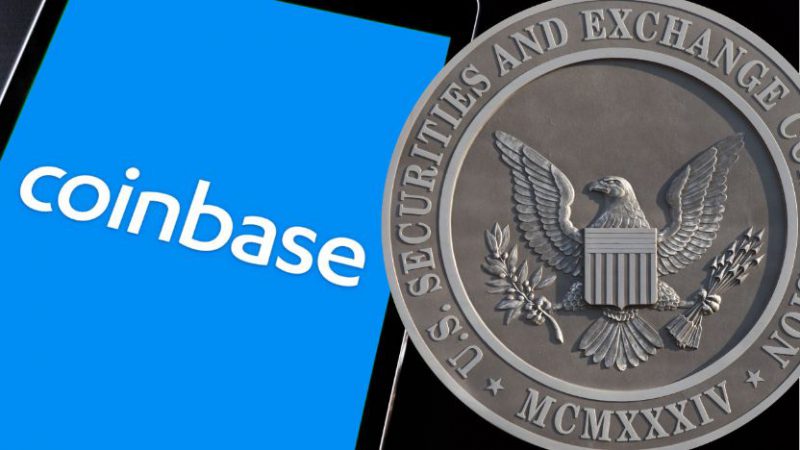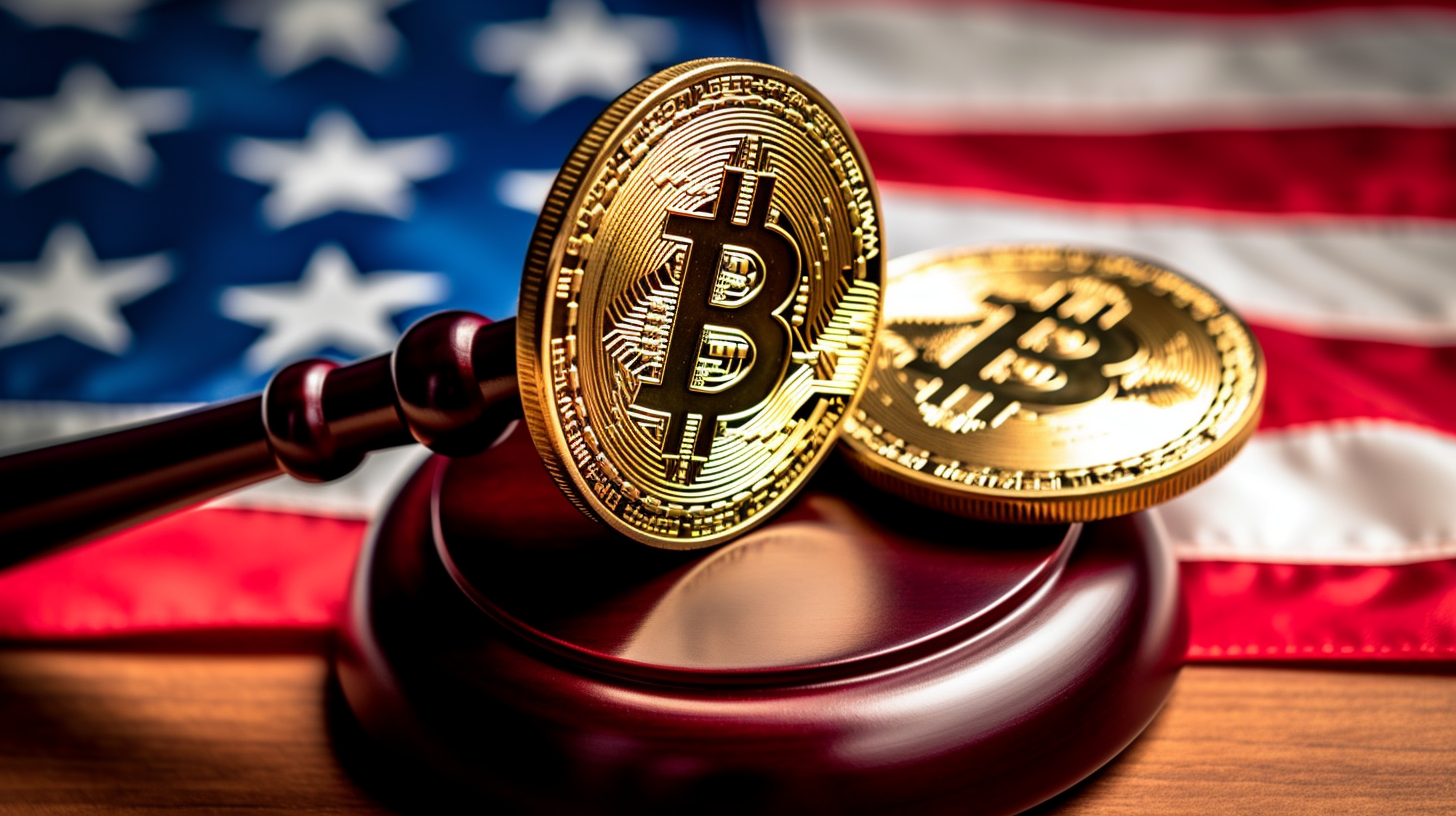The cryptocurrency world is buzzing, and it’s not just because of the prices. Recently, the SEC has rejected Coinbase’s call for new crypto regulations, and this decision has significant implications for traders, investors, and the entire digital currency ecosystem. You might be wondering, why go after regulations in the first place? Isn’t the crypto scene already full of rules? Let’s dig deeper into the reasons behind this high-stakes rejection and what it means moving forward.

the sec has rejected coinbase’s call for new crypto regulations.
Understanding the SEC’s Stance on Cryptocurrency
The U.S. Securities and Exchange Commission (SEC) has a long history of overseeing the financial market to protect its investors. However, the unique nature of cryptocurrencies makes regulatory matters quite complex. The SEC has remained firm on the belief that many digital currencies fit under the category of securities; thus, they should follow existing securities laws. This perspective is steeped in a desire to create a secure trading environment but also raises questions about innovation and progress in crypto development. The clash between innovation and regulation is a daily reality, often leaving investors in a haze. So, why did the SEC dismiss Coinbase’s plea for fresh regulations?

the sec has rejected coinbase’s call for new crypto regulations.
Coinbase: A Beacon for Crypto Advocates
Coinbase is one of the most recognized platforms for buying, selling, and trading cryptocurrencies. As the leading exchange in the United States, it has become an advocate for more structured and clear regulations regarding digital currencies. Its argument for new regulations hinges on the notion that clear guidelines would not only protect investors but would also foster growth within the industry. The idea is that regulatory clarity might help the cryptocurrency market in general thrive and adapt in an ever-evolving digital landscape. However, regulators pointed out that instead of forging new paths, Coinbase should focus on adhering to the established guidelines. This has sparked heated debates among industry participants.

the sec has rejected coinbase’s call for new crypto regulations.
A Diverging Vision for the Future
For Coinbase, the vision of a more regulated environment is akin to finding stability in a turbulent ocean. They argue that updated regulatory frameworks would not only safeguard customers but also lead to increased institutional investments, which is crucial for maturation of the crypto market. However, the SEC believes that the existing regulations suffice. By rejecting Coinbase’s call, the SEC underscored its stance: the current laws provide enough protections for the average investor and that any significant changes to these laws might jeopardize financial stability. This divergence in vision creates an ongoing dialogue about where cryptocurrency is heading.

the sec has rejected coinbase’s call for new crypto regulations.
Market Reactions to the SEC’s Decision
The news of the SEC’s rejection triggered an immediate response within the cryptocurrency market. Price fluctuations occurred almost instantaneously, reflecting traders’ reactions to the regulatory landscape uncertainty. Traditionally, bad news would lead to a short-term dip, but the cryptocurrency space often behaves unpredictably. Some analysts argued that this rejection could lead to a buying opportunity for savvy investors. Others believed it might signal a further entrenchment of resistance against innovation. Thus, the response from the market was multi-faceted, showcasing the varied sentiment amongst different investor cohorts.

the sec has rejected coinbase’s call for new crypto regulations.
The Broader Implications of Regulatory Decisions
Regulatory actions always have ripple effects that reach far beyond the immediate outcomes. The SEC’s stance not only directly impacts Coinbase but serves as a precedent for other cryptocurrency platforms and exchanges operating in the U.S. It emphasizes a cautious approach, suggesting that innovation in crypto will need to operate within strict boundaries set by existing laws. This might stifle some startups eager to disrupt the marketplace with novel ideas but could also standardize operational procedures making it a safe environment for users. This juxtaposition leads us to question what other platforms may be forced to consider as regulations evolve.
Case Studies: Past Regulatory Decisions
To better understand the SEC’s thinking, we can draw insights from past regulatory outcomes. For instance, when the SEC rejected various Bitcoin ETF proposals, it was based on concerns about market manipulation and the need for investor protection. Looking further back, the regulatory responses to traditional finance crises often shaped the rules that govern them. The ultimate goal has always remained the same—protecting investors. This historical approach indicates that the SEC will be slow to embrace significant changes, especially in such a volatile sector as cryptocurrency.
Data Visualization: Market Stability Check
The above visualization demonstrates that while some segments reacted positively, others reflected uncertainty. Retail traders remained stable; however, institutional players showed a slight drop, highlighting varied responses within different investor segments. This nuanced understanding of investor behavior emphasizes their role in shaping market dynamics.
What’s Next for Coinbase and Investors?
Moving forward, Coinbase and its advocates must adjust their strategies to align with the SEC’s existing framework while continuing to push for evolution within this vital sector. Though the path seems complicated, strategic partnerships with established financial institutions and lobbying for clearer definitions of crypto technologies might pave the way for future changes. Investors, on the other hand, must remain vigilant. Staying updated on regulatory shifts and market conditions can make a significant difference, particularly in such a dynamic field as cryptocurrency.
Final Thoughts on the SEC’s Decision
While the SEC’s rejection of Coinbase’s regulatory call might seem detrimental at first glance, it could pave the way for different types of discussions around compliance and innovation moving forward. The ongoing dialogue showcases the complexity of balancing security with growth, especially in an industry as fluid as cryptocurrency. To move ahead, stakeholders need to come together to navigate this intricate relationship between regulation and innovation and fully understand its implications for the future of finance.
FAQ Section
Why is the SEC concerned about cryptocurrency regulation?
The SEC aims to protect investors and promote fair and efficient markets. Cryptocurrencies pose unique risks, leading to the desire for stricter regulations.
What could new regulations mean for crypto investors?
New regulations might establish clearer guidelines, potentially improving security for investors and fostering institutional interest in cryptocurrencies.
How does Coinbase influence the cryptocurrency market?
As a leading exchange, Coinbase’s actions and advocacy for regulations can significantly impact market sentiment and investor behavior.
In conclusion, the SEC has rejected Coinbase’s call for new crypto regulations for several reasons. The decision emphasizes existing regulatory frameworks while opening discussions around how these regulations can evolve. Everyone involved in the cryptocurrency ecosystem must adapt and remain proactive in understanding the implications moving forward.


